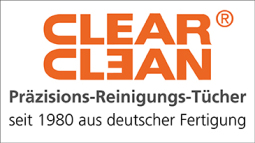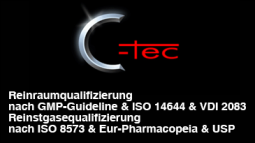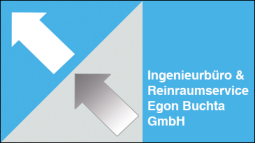- Buildings & Rooms
Micro injection moulding in a cleanroom - New machine interfacing concept
Micro-injection moulding processes enable precise and cost-effective production of the smallest plastic components. In order to meet the highest demands on product safety and quality, the production of medical products usually takes place in cleanrooms. Stamm AG has invested in a new cleanroom with a new approach to machine interfacing. The micro injection moulding machines are located partly within and partly outside the cleanroom.
At first glance, Hallau in Switzerland is a cosy wine producing town where the clocks seem to be slowing down a bit. However, as is often the case, medium-sized companies are hiding in these small towns, producing innovations of the highest standard worldwide. Stamm AG in Hallau is undoubtedly one of these creative, forward-looking companies. The plastics processors have dedicated themselves to the world of small and micro parts. And with great success. With the production of tiny components, such as gears, plugs or tips, the company in Hallau pushes the limits of the feasible. In the particularly sensitive field of medical technology, production takes place under controlled cleanroom conditions.
Micrometer-precise work
The smaller the products, the more complex and careful the manufacturing process must be. Every speck of dust can lead to a functional impairment or even to a failure. If the products are also used in the medical sector, for example in minimally invasive surgery, absolute hygiene and contamination-free delivery must be guaranteed. Compliance with constant environmental conditions during production and packaging play an important role here. For several years, Stamm AG has been pursuing the micro-injection moulding of medical-technical components under controlled cleanroom conditions. The Swiss company has invested in new micro-injection moulding machines and has now expanded its cleanroom capacity to include an additional cleanroom of the ISO 7 cleanroom class.
Detlef Moll, Managing Director of Stamm AG, explains the necessity of the investment: "We produce micro-components made of plastic. This requires the highest precision. Our technicians develop injection moulding tools that in micro-injection moulding move in the μ-range. The details of the end products are often invisible to the naked eye and yet are important components in the overall concept of our customers. Any particle that contaminates the production can lead to failure of the sensitive components. In addition to the precision of the process, we therefore ensure a controlled production environment."
Stamm AG first gained experience in cleanroom technology with a cleanroom tent a few square meters in size, which was used to control the parts produced. Convinced of the increase in quality, Hallauer soon invested in a complete cleanroom system, to which the injection moulding machines were docked. In this solution, the machines were still set up as usual outside the cleanroom and provided with a laminar flow enclosure, which allows a controlled air purity within the closing unit. The injected micro-parts are then removed by robot and fed fully automatically via encapsulated cleanroom conveyor belts into the cleanroom, where the final inspection and packaging takes place.
Innovative concept of injection moulding interface
With the expertise in highly sensitive manufacturing, the order volume of the Swiss plastics experts grew again, a further investment in two new micro-injection moulding machines with cleanroom production became necessary.
In collaboration with its long-standing cleanroom supplier SCHILLING ENGINEERING, the Swiss company opted for a new concept. In the newly commissioned, 60 m² cleanroom facility, which achieves ISO 7 class air purity, half of the machines are installed inside and half outside the cleanroom. For this purpose, a special outlet was constructed in the cleanroom wall. This variant has several advantages, as Detlef Moll explains: "The new compact solution saves space and transport routes. The injected products can be removed from the machine directly in the cleanroom. The injection unit itself is still outside the cleanroom, so that the heat loads do not occur in the controlled area. This has a positive effect on temperature control and air conditioning. This concept is brand new and was developed by our long-time partner SCHILLING ENGINEERING."
State-of-the-art, energy-efficient cleanroom system
The newly installed cleanroom system CleanCell4.0® guarantees a cleanroom air quality of the ISO 7 cleanroom class. Separate person and material locks with mutual door locking ensure safe inward and outward movement of the personnel and the packaged end product.
The cleanroom system is equipped with high-performance filters of the ULPA class U15. An innovative recirculation and return air duct within the fully glazed cleanroom walls ensures precise cleanroom flushing and high energy efficiency, as the already filtered and cooled air is returned to the air circulation circuit. Wall and ceiling modules of the modular cleanroom are connected to a silicone-free GMP sealing-clip system.
Further safety is ensured by the integrated control system CRControl®. Using the interactive monitoring of the control system, interfaces are established to the connected probes that measure pressure, humidity and temperature, to filter modules, air conditioning cabinets, door and light functions and other components. All important functions are monitored and can be individually controlled and regulated. In this way, a simple remote maintenance is possible.
Detlef Moll is pleased about the new investment: "We were already able to commission the new cleanroom and it meets all our expectations. The installation of the injection moulding machines inside the cleanroom has proven to be a good advancement. The cleanroom runs trouble-free and safe as usual, it is also quiet and equipped with a very good LED lighting and full glazing, facilitating the working conditions for our employees in the cleanroom."
The cleanroom was offered by SCHILLING ENGINEERING as a turn-key solution. Planning, production, installation and qualification were completed within two months.
![]()
Schilling Engineering GmbH
Industriestraße 26
79793 Wutöschingen
Germany
Phone: +49 7746 927890
email: info@schillingengineering.de
Internet: http://www.schillingengineering.de












